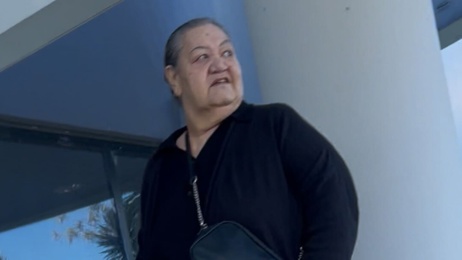
By Rowan Quinn of RNZ
Medical jobs are going unfilled as part of a crackdown on hospital recruitment, despite Te Whatu Ora Health NZ saying otherwise.
RNZ has heard from multiple hospital workers throughout the country who say clinical jobs in their departments are being left vacant — and a senior hospital leader has written to staff about the “overly complex and bureaucratic” recruitment process.
In June, Te Whatu Ora instigated a hiring freeze on all roles that were “not patient facing” to try to rein in its budget, but its language around whether that applied to any medical jobs was murky.
It said all clinical roles that “needed” to be filled would be, but did not answer questions about what that meant in practice and whether any were being turned down.
But the senior doctors’ union, and other health workers who contacted RNZ, said in many cases clinical recruitment had ground to a halt — even the straightforward replacement of a departing doctor or nurse.
There was now a quota on how many jobs could be filled for each region and every appointment had to be approved by a regional committee.
Association of Salaried Medical Specialists executive director Sarah Dalton said frustrated doctors from many specialities had told her they were unable to fill desperately needed roles.
Even hospital bosses, like Middlemore’s chief medical officer of health, Andrew Connolly, had expressed worry about the lag.
In an email to his senior staff in June seen by RNZ, he told them he was well aware of the frustration and challenges around hiring.
“The recent ‘confusion’ following Head Office comms has not helped, to put it mildly, but whilst there is apparently no freeze on clinical recruitment the process remains overly bureaucratic and unnecessarily complex and it is very slow,” he said.
A Te Whatu Ora spokesperson said the Connolly email referred to the earlier version of the recruitment change where every role in the country had to be approved by one person in the head office, and not the updated regional committee process.
However, Dalton said hospital doctors and dentists told her little had changed and there were multiple examples of hiring still grinding to a halt.
“It is incredibly difficult to get approval to recruit, to go through a recruitment process, to do all of that machinery of getting someone into a role,” she said.
“It has absolutely slowed things down where the point from our perspective is it is a freeze.”
A nurse at Southern DHB told RNZ a role in their department had been empty for about 10 weeks after a colleague left, even though a manager requested they be replaced almost immediately.
Normally, approval would take about a week — two at the most.
She wanted Te Whatu Ora to be honest about what was happening.
An internal Te Whatu Ora recruiter, who asked not to be named, said many of her colleagues had been in tears as they spoke to angry clinical managers wondering why nothing was happening about roles that needed to be filled.
The managers had been initially told the freeze did not apply to clinical roles, but recruiters had been told to pause everything, she said.
That was backed up by an internal FAQ document seen by RNZ that said the “pause” covered all roles.
In a statement, Te Whatu Ora said clinical recruitment was continuing. It quoted the number of clinical hires from before the freeze was put in place, but said it did not have figures for June.
Staff spoken to by RNZ said while some clinical jobs may be being filled, it was clear many were not, even if it was just because of a long delay.
The new process
A Te Whatu Ora document seen by RNZ has outlined the new hiring process.
Department managers must make their request for a vacancy they want filled by Wednesday each week. A human resources person then collates all the requests and they compare those with that fortnight’s recruitment quota.
They give that information to their regional recruitment forum, a committee made up of hospital managers — both clinical and finance/operational.
The forum makes a decision then sends it to the national recruitment team and the cost-saving programme team.
The following Wednesday, the department managers can begin recruiting for any approved jobs.
The regional recruitment forum has to prioritise approving roles that address a shortage on the critical workforce list and must consider the hospitals with the greatest frontline need.
Some roles are exempt from the committee approval process, including internal appointments to existing roles and those where there is extreme need.
Health NZ responds
Health NZ chief executive Margie Apa said more than 600 staff, including 124 doctors, 240 nurses and 140 allied health professionals, accepted a job offer in June.
“As is routine with recruitment, we recognise there may be delays at times between when staff leave and new staff come into roles.”
The new process meant recruitment had been “brought closer to the front line”, she said.
“Clinical recruitment continues, led by regional leaders working within region and district budget parameters. This means decisions are made where local needs are best understood and prioritised.”
Health NZ was pleased with its progress around recruitment and was “determined to maintain momentum”, Apa said.
“Overall, we have exceeded expectations in recruitment across different professions, and are realigning budgets to prioritise ongoing funding for frontline services.”
Take your Radio, Podcasts and Music with you









